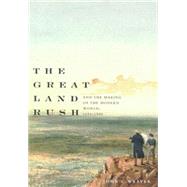
Note: Supplemental materials are not guaranteed with Rental or Used book purchases.
Purchase Benefits
What is included with this book?
| Illustrations | |
| Maps and Tables | p. vii |
| Acknowledgments | p. ix |
| Introduction: Arranging New Worlds | p. 3 |
| Scanning the Horizon | |
| Concepts: Empires and Perspectives on Land | p. 11 |
| Property Rights: Origins, Organization, and Rationales | p. 46 |
| Parameters: Places, Shapes, Scale, and Velocity | p. 88 |
| An Appetite for Land | |
| Acquisition: Uprooting Native Title | p. 133 |
| Allocation by Rank: Landed Estates and Citizen Speculators | p. 178 |
| Allocation by Market: The Geometry and Ledgers of Assurance | p. 216 |
| Allocation by Initiative: Landhunters, Squatters, Grazers | p. 264 |
| Reapportioning the Pieces | |
| Reallocation: Breaking Up Big Estates and Squeezing Margins | p. 311 |
| Epilogue: The Modern World Surveyed | p. 348 |
| Notes | p. 361 |
| Index | p. 469 |
| Table of Contents provided by Ingram. All Rights Reserved. |
The New copy of this book will include any supplemental materials advertised. Please check the title of the book to determine if it should include any access cards, study guides, lab manuals, CDs, etc.
The Used, Rental and eBook copies of this book are not guaranteed to include any supplemental materials. Typically, only the book itself is included. This is true even if the title states it includes any access cards, study guides, lab manuals, CDs, etc.